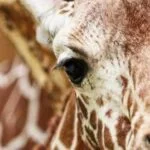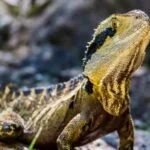Animal emotions film raises awareness of welfare issues facing zoo animals
An animal welfare charity has released a film about animal emotions, that delivers simple messaging about good animal welfare and what wild animals held in captivity need to be happy and healthy.
Zoo animal welfare charity Wild Welfare, has released Imagine If, an animated film that discusses animal emotions and asks viewers to imagine if they were a zoo animal, what they might feel.
Very conservative estimates indicate the number of animals held in zoos worldwide exceeds 2.5 million1. Wild Welfare believes that every zoo’s responsibility is to ensure their animals live lives worth living and has produced the short film to raise awareness of some of the current welfare issues facing zoo animals globally.
Imagine If highlights the different emotions animals can feel, just like humans, such as contentment and joy. The film demonstrates the connection between these emotions and an animal’s welfare and highlights how inadequate care in zoos can result in feelings such as loneliness or stress and consequently animal suffering.
Wild Welfare’s director, Georgina Groves, said: “It’s vital to help people understand the common ground they share with wild animals, in the way they think, feel and experience.
“If people understand that wild animals have many of the same emotional needs as they do, we hope they’ll be motivated to help us tackle the suffering many animals in captivity around the world are facing.”
The film differentiates between good zoos, where animals have positive experiences, can freely exhibit their normal and natural behaviours and where animal welfare is prioritised, and zoos where animals do not have the same freedom and choice, where their normal behaviours are not always considered and as a result their welfare is compromised and they can suffer.
Only a small percentage of the more than 10,000 zoos and aquariums estimated to exist globally, fall under country-wide animal welfare legislation and or guiding principles from a zoo association, with a significant number falling outside any such protection. Therefore, despite significant advances in animal welfare science by leading zoo bodies, poor animal welfare is still widely observed in zoos around the world.
“The world’s leading zoos are at the forefront of animal welfare research and global conservation and are always seeking new ways to best care for wild animals so they can live happy, fulfilled lives,” Georgina Groves added.
“Sadly though, our experience shows us that these leading zoos are just a small number, perhaps only hundreds, among tens of thousands worldwide, where that same consideration for animal welfare is not the norm.
“These other facilities often lack the relevant knowledge, experience and resources, resulting in animals living in conditions where even their basic needs are not able to be met.”
Wild Welfare is showing the film online and across its social media pages, accompanied by information on ways the public can help ensure all zoos are good zoos. The practical guidelines2 for the public include:
- Reporting poor animal welfare conditions observed in zoos and aquariums.
- Visiting only accredited zoos and aquariums that have measurable welfare requirements and are regularly monitored by experts in the animal health and welfare community.
- Refusing to participate in animal interactions where an animal’s welfare appears compromised and where animals cannot choose to take part, such as selfie experiences and riding wild animals.
- Attending only shows and performances that are animal-friendly, where the animals can choose to take part or not and where the animal displays its normal and natural behaviours, not circus-style tricks or stunts.
Wild Welfare is working to address the welfare issues facing wild animals in captivity and raising standards for zoo animals globally. The Imagine If animation is part of the charity’s ongoing animal welfare education work with zoo staff around the world, and is set to be translated into other languages.
Watch the animation and find out how you can help.
~ENDS~
Notes to Editors
- A study in PLOS ONE processed data from the International Species Information System (ISIS) (now called Species 360). The Species 360 network is made up of more than 800 zoos and aquariums and shares information about ∼2.5 million individuals. With estimates made by the American Zoo and Aquarium Association (AZA), putting the number of zoo and aquarium facilities worldwide at more than 10,000, this 2.5 million figure is likely to be a very conservative estimate of the total number of wild animals housed in zoos around the world.
- Full information for the public at: www.wildwelfare.org/imagine-if-ensure-all-zoos-are-good-zoos
For more information or interview requests please contact Wild Welfare on communications@wildwelfare.org
Wild Welfare is a global organisation committed to improving animal welfare for captive wild animals. By uniting the world’s leading zoos, zoo associations and animal welfare organisations, we build trusting partnerships that help provide long-term solutions to critical wild animal welfare issues.
Our vision is to end the suffering of captive wild animals around the world and ensure full and sustainable protection is given to all animals in human care. Find out more at www.wildwelfare.org. Registered charity in England (no.1165941).





